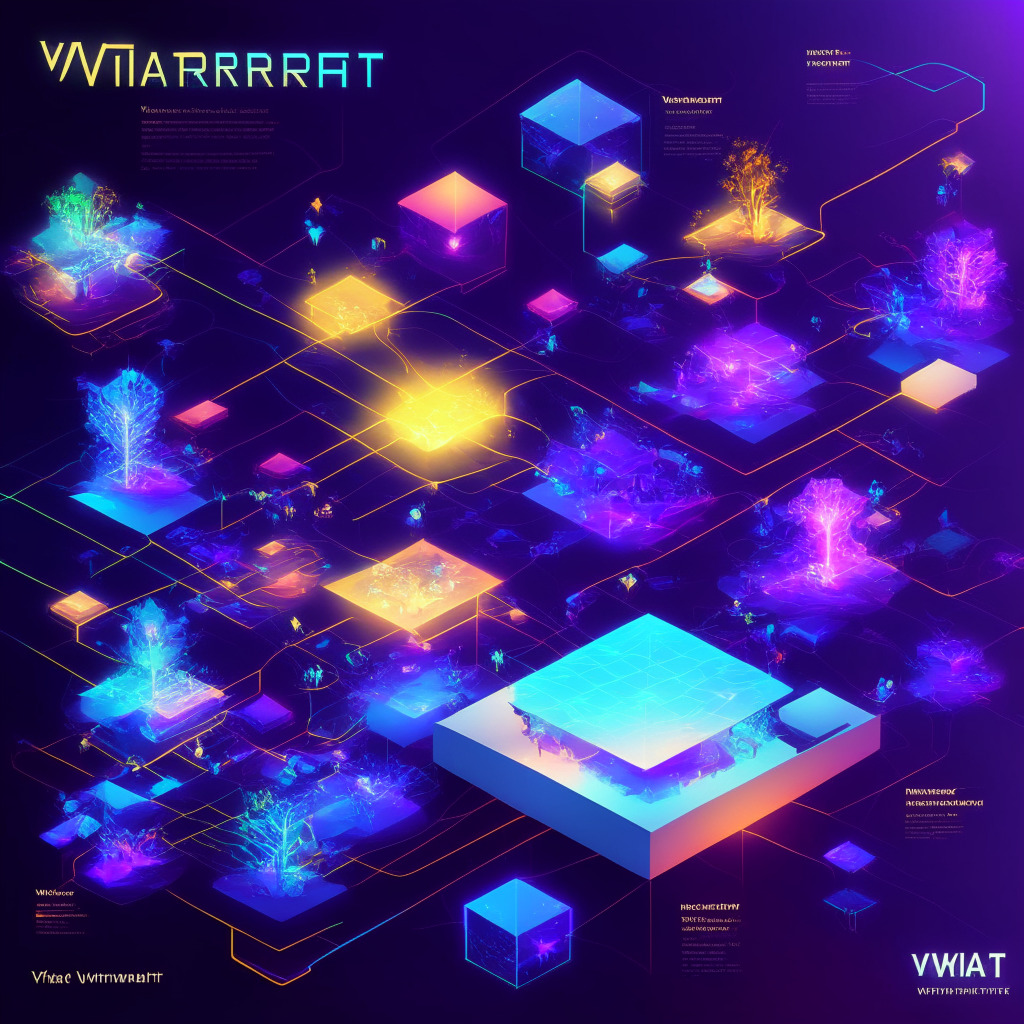The Central Bank of Brazil’s exclusion of crypto-related companies from their CBDC pilot has raised concerns about favoritism towards traditional financial institutions. Critics argue that this decision suppresses potential innovation and collaboration between emerging and established financial systems, hindering integration of digital currencies in the global financial landscape.
Search Results for: Ethereum Virtual Machine
Sui’s Entrance into Web3 Gaming: Unique Features Attract Game Developers & Revolutionize NFTs
Layer-1 blockchain network Sui enters the Web3 gaming ecosystem with unique capabilities, enabling parallel transaction processing, horizontal scaling, and dynamically-updated NFTs. Attracting over 40 games to build on it, Sui’s object-based model and gaming-oriented features offer developers an appealing alternative in blockchain-based gaming.
ZkLink’s $10M Funding Paves Way for Cross-Chain Trading Revolution: Coinbase Backs the Project
ZkLink, a blockchain infrastructure layer streamlining asset trading across networks, raises $10 million in strategic funding with backing from Coinbase Ventures. As zkLink prepares for Q3 mainnet launch, it plans to employ zero-knowledge rollups to create efficient, trustless trading experiences, aiming to connect layer 1 blockchains and layer 2 protocols.
Flare Integrates Blockchain APIs with Google Cloud Marketplace: Pros, Cons & Centralization Debate
Flare’s integration with Google Cloud Marketplace brings nine blockchain APIs, including Bitcoin and Ethereum, to the ecosystem. This collaboration offers developers and users access to highly-integrated blockchain data, facilitating cross-chain applications and easing blockchain experimentation without hardware costs or ongoing maintenance burdens. However, some express concerns regarding potential centralization issues.
When Blockchain Meets Regulation: A Tale of NFTs, SEC and Unseen Chains
In an unprecedented move, the U.S. SEC has classified a non-fungible token (NFT) as a security, underlining the regulatory complexities as crypto technologies evolve. The incident serves as a warning to crypto projects, revealing that despite the inherent freedom within the crypto landscape, invisible chains bound them when engaging in regulated activities.
Breaking Boundaries with Zero Knowledge Proofs: Andreessen Horowitz’s Lasso and Jolt Projects Unveiled
Andreessen Horowitz recently unveiled two innovative open-source projects, Lasso and Jolt, centered around zero-knowledge proofs – a robust form of cryptography. These initiatives aim to enhance transaction speed, cut costs, boost privacy, and empower external developers, introducing new opportunities to scale blockchain networks.
Decoding the Andrew Horowitz Bet on ZK Proofs: Unlocking Blockchain’s Future or Unlocking Concerns?
Venture capital firm Andreessen Horowitz (a16z) is investing in the development of zero-knowledge (ZK) proofs and open-source software projects, Lasso and Jolt, aiming for scaling blockchains while preserving transaction privacy. These technological advancements may transform blockchain’s scalability and privacy, but could also introduce new vulnerabilities and challenges.
Avalanche’s Paradox: Increasing Transactions Despite Shrinking User Funds
“In Q2, Avalanche, a major smart contract platform, saw a surge in usage but diminishing invested funds. Despite a crypto bear market, Avalanche displayed steady growth through increasing daily transactions and active addresses. A decrease in total money locked, however, suggests user caution, possibly due to market factors.”
Bolstering Blockchain: The Integration of ZK Proofs in Cryptographic Technologies
This article discusses the partnership between Paris-based =nil; Foundation and Fabric Cryptography as they work together to enhance cryptographic technologies and accelerate the deployment of zero-knowledge (ZK) proofs – a cryptographic procedure with substantial privacy-preserving attributes. They aim to overcome barriers in computation, making ZK proofs more functional for digital transactions, cloud services and privacy applications.
Navigating Turbulence: Filecoin’s Journey Amid Crypto Market Volatility and Adoption Woes
Filecoin, a blockchain storage network, despite market turbulence, saw its storage utilization rate surpass 7%. However, it faced a 40.7% decline in protocol revenue this quarter, largely due to the falling value of FIL tokens and market volatility. Filecoin’s move to release the virtual machine (FVM) shows promise in navigating these challenges.
Exploring the Future of DeFi on Bitcoin: Potential and Challenges
DeFi on Bitcoin is possible through innovative solutions, leveraging the security and liquidity benefits of the network. Although integration is a technical challenge, growing interest and developments like RSK and Stacks showcase Bitcoin’s potential role in the DeFi ecosystem.
Beijing’s Web 3.0 White Paper Unveiled: China’s Edge in Blockchain & Crypto Race?
Beijing’s science and technology government body released a white paper on Web 3.0 innovation and development, supporting advancements in blockchain, cryptocurrency, and related fields. Meanwhile, Hong Kong prepares to launch its crypto licensing regime, while the US faces regulatory crackdowns, potentially giving China an edge in the race to pioneer Web 3.0 technologies.
Uniswap V3 Deployment on Polkadot: Scalability Boost & DeFi Safety Debate
Uniswap plans to deploy its V3 iteration on Polkadot, offering enhanced capital efficiency, flexible fee structures, and an improved user experience. This move highlights the growing popularity of decentralized exchanges, with Uniswap V3 capturing over 50% of monthly DEX market share.
Layer-2 Blockchain Revolution: Unveiling Starknet’s 2023 Roadmap, Throughput, and Scalability
As layer-2 blockchain protocols gain momentum in 2023, Starknet’s ambitious roadmap plans to help the […]













